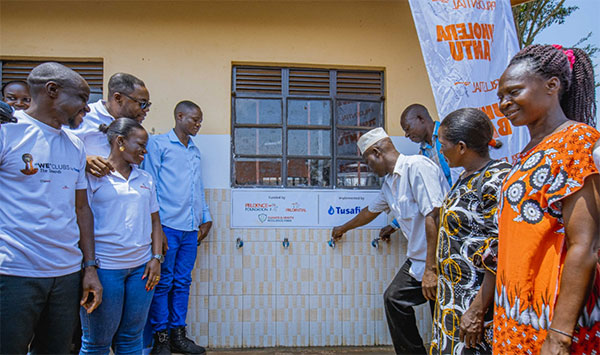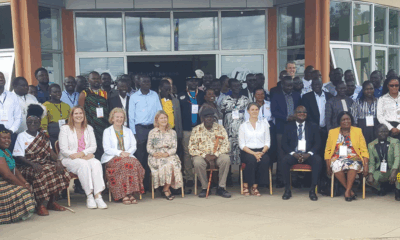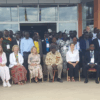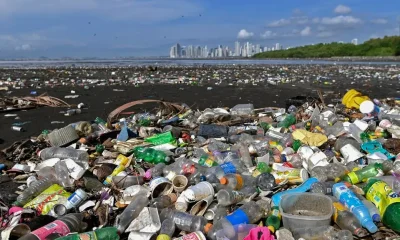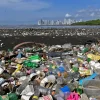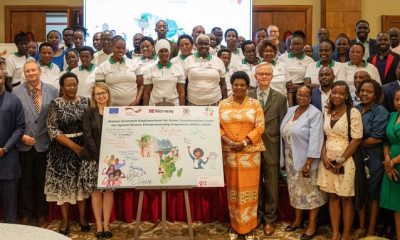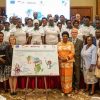Climate Change
Prudential Uganda and Tusafishe Deliver Clean Water and Climate Resilience to Over 119,000 Ugandans
Prudential Uganda, in partnership with the social enterprise Tusafishe Limited, has concluded the Prudential Climate and Health Resilience Fund, an eight-month initiative that has brought safe drinking water and environmental education to some of Uganda’s most underserved communities.
The fund, established by the Prudence Foundation—Prudential’s community investment arm—was designed to help communities adapt to the health impacts of climate change. In Uganda, the project has transformed access to safe water in both schools and households across six districts.
Through the project, 71 institutional water purification systems and 40 domestic filters were installed in schools and households in Fort Portal, Kyenjojo, Kyegegwa, Kamuli, Mbale, and Sironko districts. These systems can purify thousands of litres of water daily without electricity, making them particularly valuable for remote and off-grid areas.
The initiative has directly benefited 119,562 people, most of them children, by providing sustainable solutions to long-standing water insecurity.
Research has repeatedly shown the profound impact of water insecurity on education. A 2017 study published in Global Mental Health revealed that even a small increase in water insecurity correlates with more missed school days for children in rural Uganda—up to 0.30 additional days per child in a single week. Over time, this loss accumulates into significant setbacks in learning and opportunity.
At the handover ceremony in Kamuli, Prudential Uganda’s CEO, Tetteh Ayitevie, underlined the broader impact of the project: “Without clean water, everything else is harder. A sick child can’t learn properly. Up to 70% of diseases in Uganda are linked to unsafe water and poor sanitation. This project is about protecting children’s health so they can thrive in school and in life.”
Beyond health and education, the project also invested in climate resilience. More than 3,000 moringa and fruit trees were planted in participating communities to boost nutrition, restore local ecosystems, and mitigate climate change impacts.
Environmental education was integrated into the initiative through the establishment of Water and Environment Clubs in all 71 schools. Over 537 community members and thousands of students were trained in water system maintenance, sanitation, and climate-smart practices, ensuring the sustainability of the project.
For Tusafishe, which implemented the project on the ground, the partnership demonstrated what collaboration can achieve in challenging contexts. “Some of these schools are in very remote areas where even getting construction materials in was a challenge,” noted Henry Othieno, CEO of Tusafishe. “But every child, no matter where they live, deserves safe water. Our partnership with Prudential has allowed us to deliver solutions that are not only effective but sustainable.”
Despite progress, 38% of Ugandans still lack access to safe drinking water, according to UNICEF. Rural areas bear the greatest burden, with many schools and households relying on contaminated streams, unprotected springs, or unreliable boreholes. This results in frequent outbreaks of waterborne diseases and lost school time.
Ayitevie reaffirmed Prudential’s commitment to sustainable impact: “When we started this project, our goals were clear—protect children from waterborne disease, promote climate resilience, and invest in solutions that safeguard health and the planet for generations. Seeing the results today, I can say this is one of our proudest achievements.”
The success of the Prudential Climate and Health Resilience Fund highlights how corporate partnerships, community innovation, and evidence-based interventions can tackle Uganda’s most pressing challenges—ensuring safe water, healthier children, and a more climate-resilient future.
Comments



